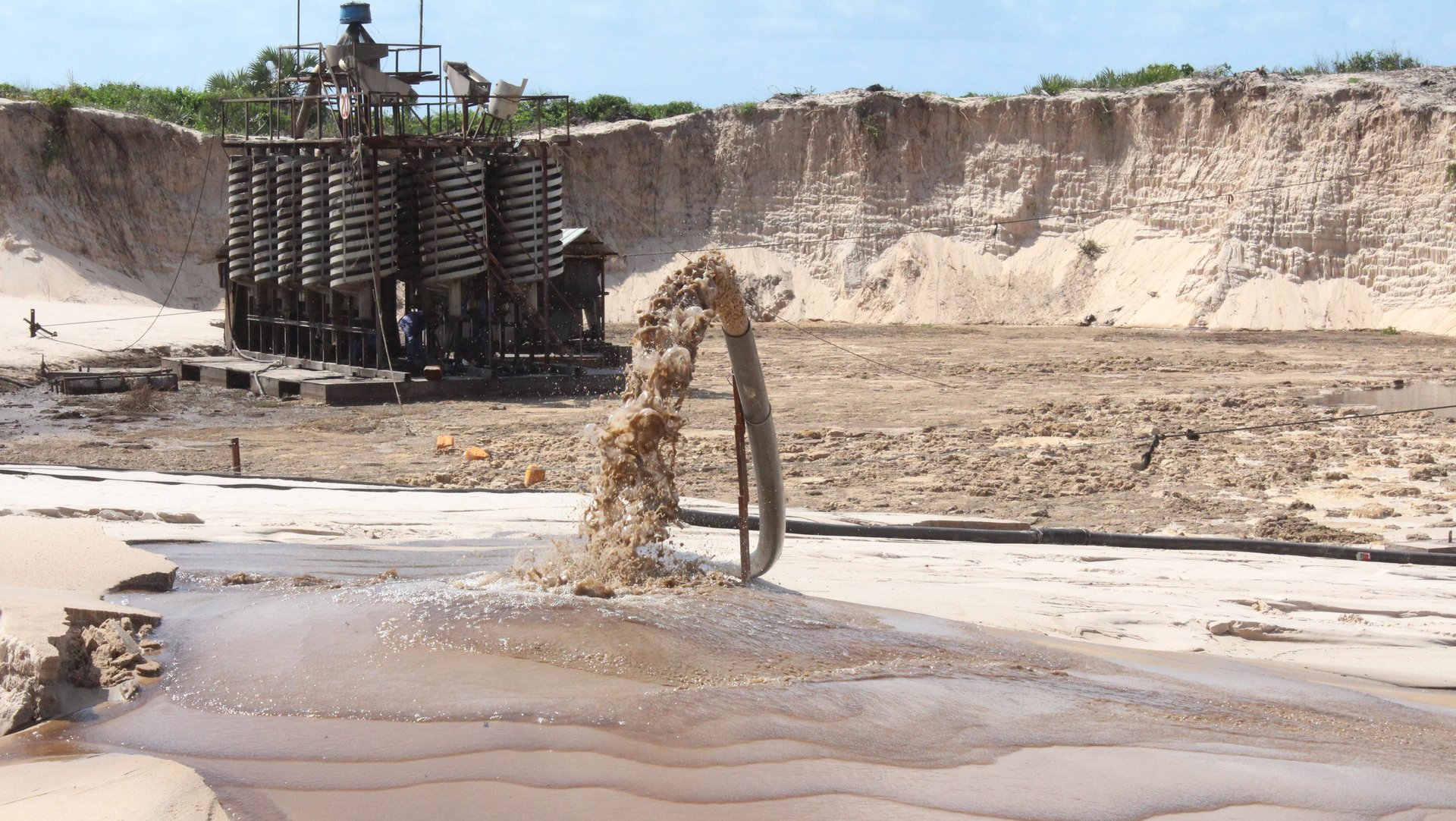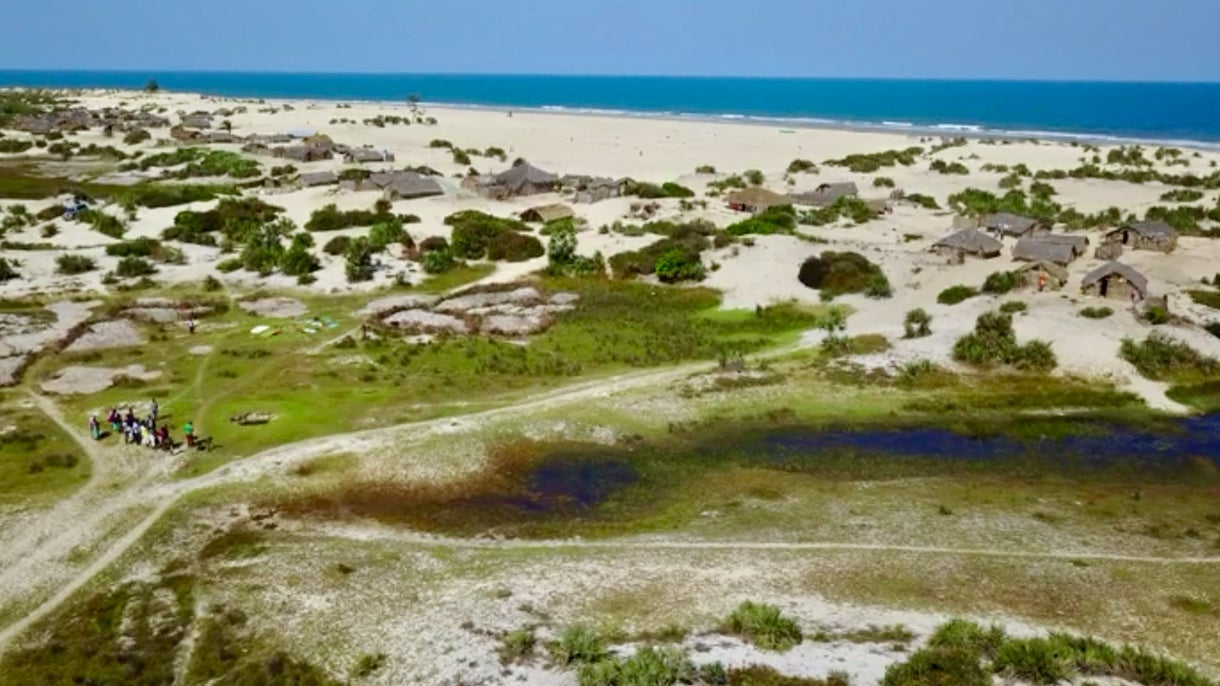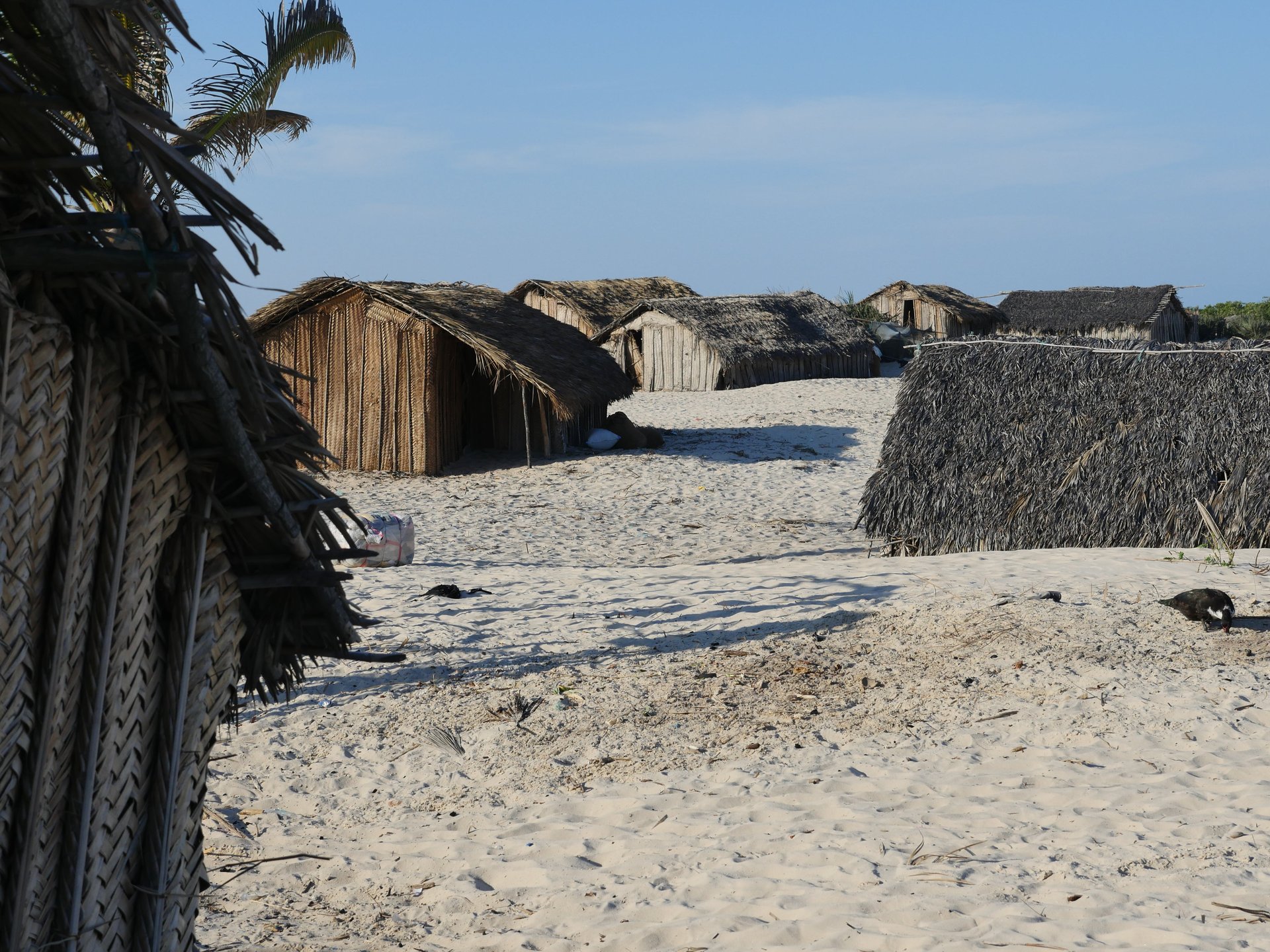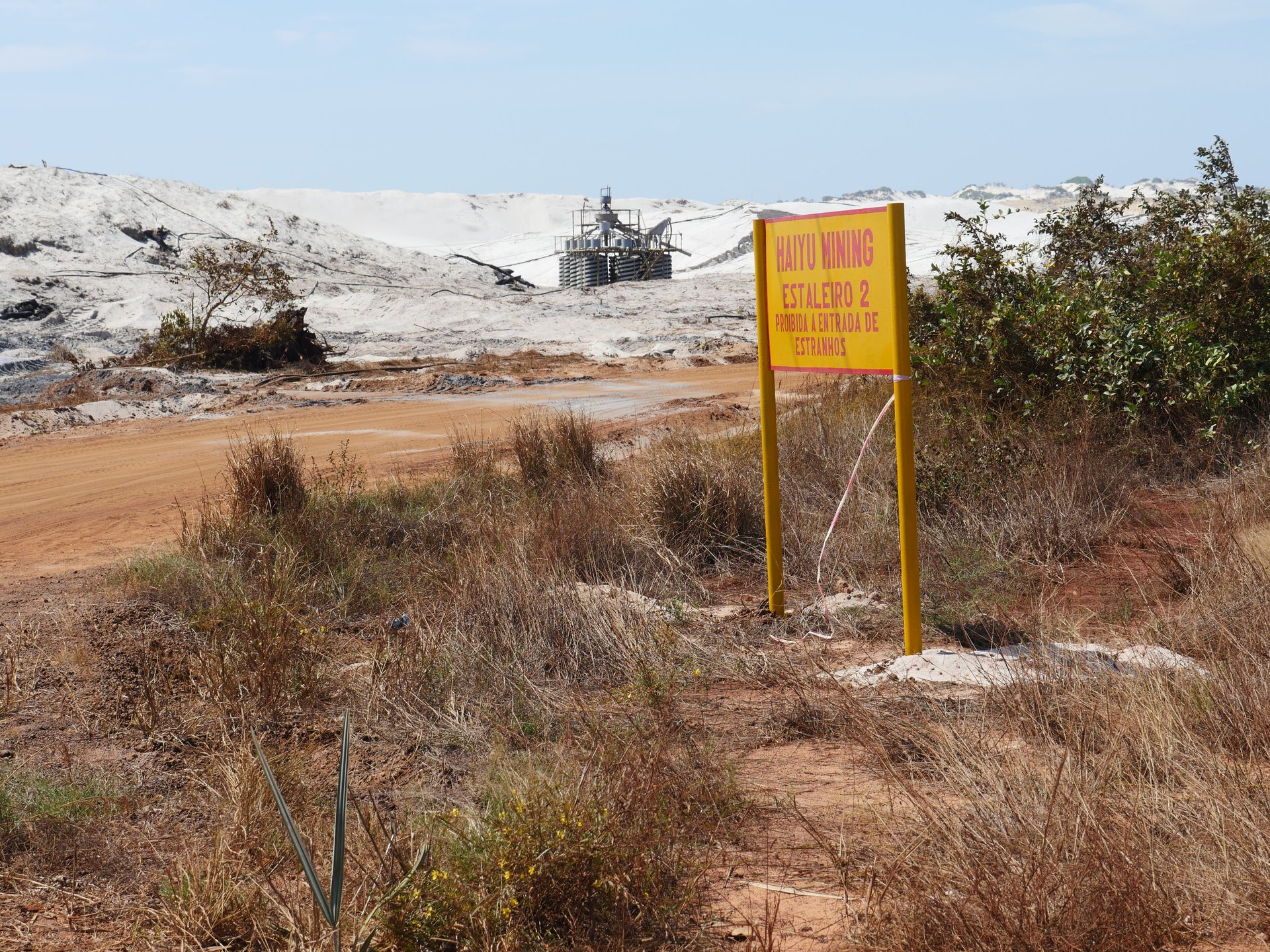China’s search for sand is destroying Mozambique’s pristine beaches
As a commodity, sand has historically been ignored underfoot, but as the world realized that it was not in fact an infinite resource the same rush that has characterized unethical mining practices is now threatening the world’s most treasured sand deposits: pristine beaches.


As a commodity, sand has historically been ignored underfoot, but as the world realized that it was not in fact an infinite resource the same rush that has characterized unethical mining practices is now threatening the world’s most treasured sand deposits: pristine beaches.
The community of Nagonha in northern Mozambique sits on a tall dune with lush greenery on the one side, and a turquoise Indian ocean on the other. It should have been the kind of unspoiled landscape that Mozambique’s growing tourism industry is beginning to take advantage of. Instead, a Chinese mining company has irrevocably tarnished the scenery, and people’s lives.
Amnesty International has visited the village four times since 2015, when unprecedented flash flooding first partially destroyed the village. Elders who’d lived in the area for decades have no living memory of similar floods. They blame the Haiyu Mining Company for changing their world, according to Amnesty International, which followed up this month on its in-depth report, first published in March.

“We should be compensated for our losses by the Chinese; their machines blocked the water in the wetlands,” said Tola, a local fishermen who lost all his gear, worth only about $115, but took years to acquire.
“My house was exactly where that river is; right there where you see the river,” said Roma, who lost his two bedroom home and everything he owned. “We watched the house being dragged by the water. I cried.”

The community of 1,329 residents was already vulnerable. A village of 236 huts built on a dune between Mozambique Channel in the Indian Ocean and a lagoon by the same name, Nagonha lacked basic services like running water and electricity. This is not uncommon in Mozambique, a country still trying to rebuild from nearly two decades of civil war that ended in 1992.
These conditions, however, have made the community vulnerable to the country’s eagerness to take advantage of Chinese investment. In the last decade or so, Mozambique’s government has encouraged mining as a form of economic growth, granting concessions to international players.
Haiyu Mining Company was registered in China’s Hainan province in 2010 and incorporated in Mozambique in 2011, as a joint mining venture with the Maputo-based Africa Great Wall Mining Development. The company is a subsidiary of the Jinan Yuxiao Group, now China’s biggest uhligite producer, a mineral found in sand.
The minerals found in sand are key ingredient cement, mortar, tile, brick, glass, adhesives, and ceramics. With rapidly developing cities, China has become the worl’d largest consumer of concrete, and sand as a raw material.

At first, the community welcomed the mine, which they said just appeared, even though Mozambican law requires community consultation. They hoped it would lead to jobs and infrastructure development, but so far it has only led to losses.
Sand deposits from the mining activity have covered about 280,000 square meters (more than 3 million square feet) of wetland, blocked the channel connecting the lagoon to the ocean and changed the flow of fresh water, according to satellite images taken by Amnesty International.
Haiyu has denied any wrongdoing, blaming natural forces beyond human control. The Chinese government dismissed the report, saying the international NGO has always been biased against China. The company has also refused to compensate the villagers who lost their livelihoods.
After the initial report, the Mozambican government suspended mining in the region. When Amnesty International returned to the region a few weeks ago, the mining had resumed, the organization’s Robert Shivambu told Quartz. The government’s response has been to move those who are willing to relocate. A few have remained behind and are trying to mount a David-versus-Goliath challenge to unethical mining practices.
Sign up to the Quartz Africa Weekly Brief here for news and analysis on African business, tech and innovation in your inbox